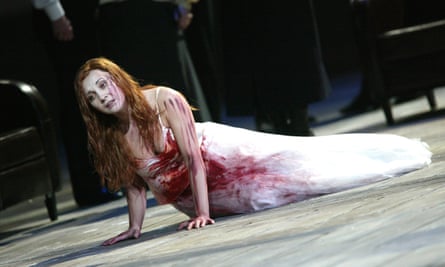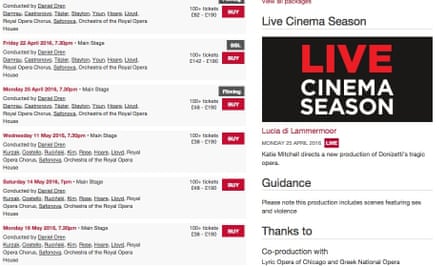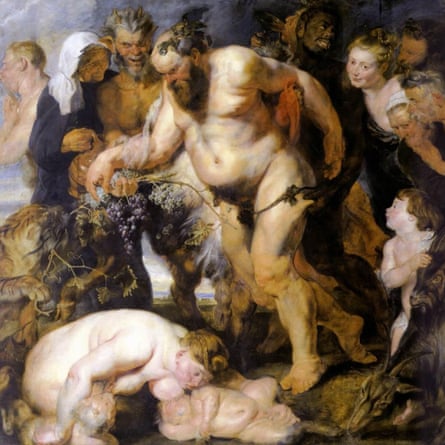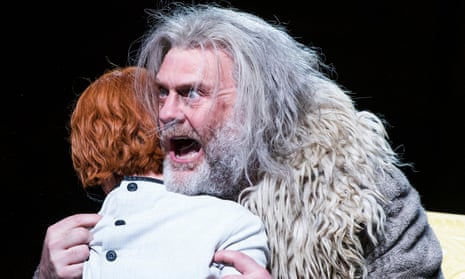Imagine the scene. All round the Royal Opera House, hoards of weeping children, begging to be admitted to Mussorgsky’s Boris Godunov, which opened in a new production this week. “Please, Mum! It’s not fair. It’s the original 1869 version! You promised.” But their careful parents have just read the programme:
Please note that this production realistically depicts and revisits the murder of the young crown prince Dmitry. We advise that it is not suitable for children under the age of 12 years.
Quite right. We all know opera is a dangerously realistic art form. Nine times out of 10 it ends in death. We know, too, about copycat crimes. Those 12-year-olds who encounter young crown princes like Dmitry in the playground could get ideas. They may dress up in a puppet mask and enact a repeated dumb show, with three faintly comical looking assassins, lasting around six seconds, as in the Royal Opera’s new staging. You cannot be too safe. Go home, Mum, Dad and Junior, for a soothing family evening round the Playstation. Grand Theft Auto V, maybe, or Call of Duty.

Luckily, Junior has some Donizetti ahead – Lucia di Lammermoor. Nothing can be safer (or more long-winded, Dad pipes up. He alone of his generation has read The Bride of Lammermoor) than an opera based on one of Walter Scott’s Waverley novels.
But no. That same day, an email arrives to all patrons of the Royal Opera who have bought Lucia tickets. Mum and Dad had seen the ROH website warning: “Please note this production includes scenes featuring sex and violence.” They took the trouble to check that the sex and violence occurred separately. They’ve been assured this is the case. Sex, yes. Violence, yes.
But the insistent tone of the email sets them worrying afresh. Rehearsals for Katie Mitchell’s new production are cooking up a storm but it is clear that:
… the team’s approach will lead to scenes that feature sexual acts portrayed on stage and other scenes that – as you might expect from the story of Lucia – feature violence.

It’s easy to make fun. The Royal Opera’s nervousness follows an uproar last year about its production of Rossini’s Guillaume Tell, which had a highly charged scene in which a woman is stripped naked and raped by soldiers. There was genuine distress. Some people walked out. Others booed during the performance. I felt inclined to neither but responded, acutely, to the legitimate horror depicted. “An insult to women,” roared the media. Precisely so.
Afterwards, the Royal Opera issued an apology. They are decent people. They do not set out to upset. At the same time, it was a slippery slope, as the examples of Boris Godunov and now Lucia di Lammermoor suggest. What will they say about Madame Butterfly (matricide), Die Walküre (incest), Tosca (balcony: trip hazard)?
Never apologise for art. Art entertains and delights. It also shocks us into awareness. It shows us aspects of life we may prefer to turn away from. If you are seriously sensitive, enquire ahead. Admittedly, that is not so easy: usually when you ring a theatre, you get an automated phone system or a “Sorry mate, haven’t the faintest”. But maybe live theatre is not for you. Test yourself with Sarah Kane’s Cleansed at the National.
The world of “If you have been affected by any of these issues … ” has gone mad. We’ve all been affected by some, most or all of them. A friend took an opera novice to Puccini’s Il Trittico. Halfway through, it struck her that two of the operas involve the loss of a child. Her companion had suffered that fate. My friend felt upset and appalled. Her friend took it in her stride. Life is made all the more bearable and comprehensible by art. It unites us. That’s why opera, or any art form, speaks to us so directly.
The Royal Opera has provided an email address for any Lucia ticket holder liable to be upset. “And we will of course discuss suitable arrangements,” they say. A therapy session, a bandage to cover your eyes, a double scotch on the house? No details are given. More likely, your money back so no offence is caused. The nanny state rules. Don’t let it.

These art works in various media could upset. You have been warned …
Titian: The Flaying of Marsyas – may cause mild skin irritation.
Shakespeare: Richard III – “Teach kids to be smart about strangers”
Richard Strauss: Salome – dirty dancing.
Stravinsky: The Rite of Spring – more dirty dancing.
Verdi: Falstaff – obesity Britain.
Rubens: The Drunken Silenus – talk to your child about the risks of alcohol.
Prokofiev: The Gambler – stop while it’s still fun.
Gericault’s The Raft of the Medusa – not to be eaten.
Europa and the Bull – say yes to Brexit. Or no.
Stubbs: Whistlejacket – grooming.

